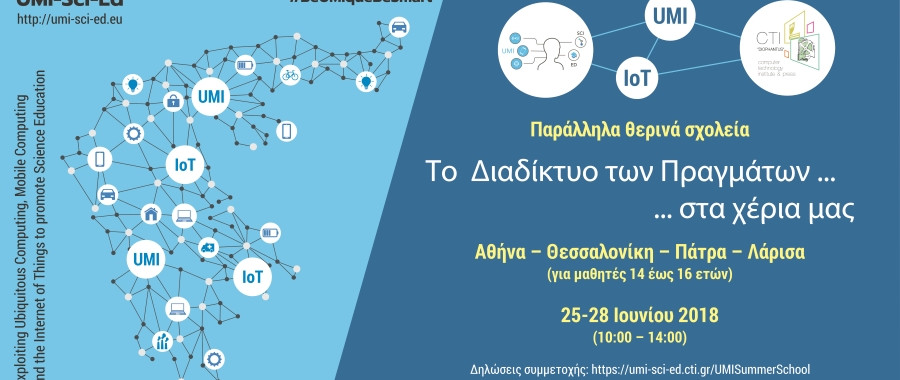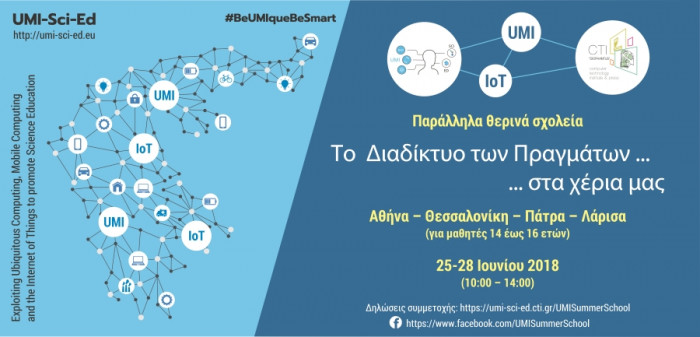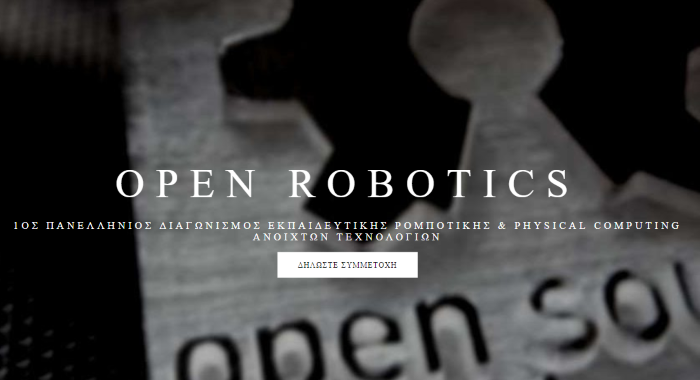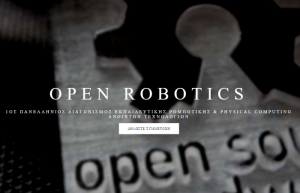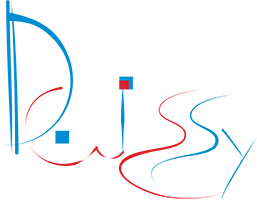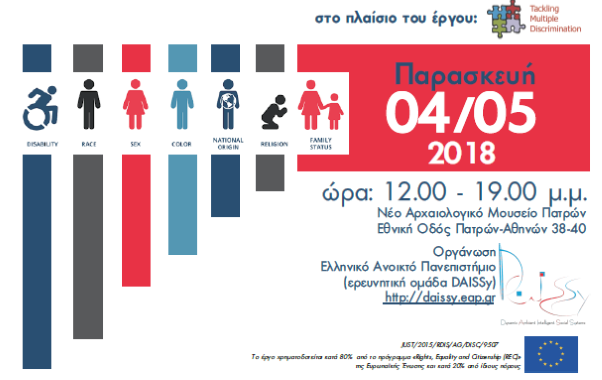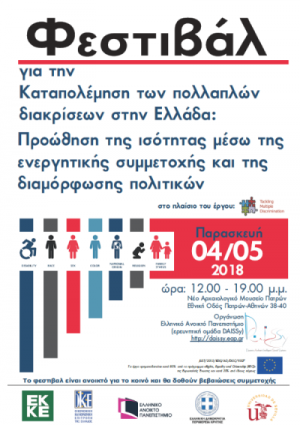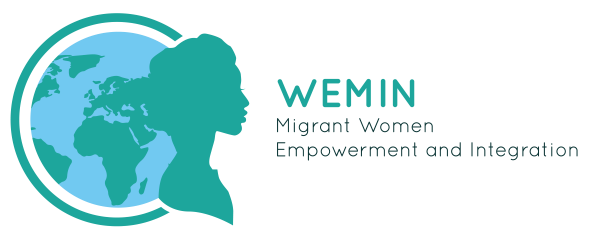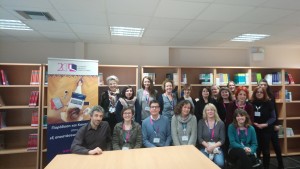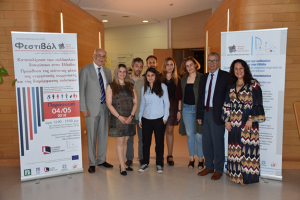 Α one-day festival on combating discrimination against stereotypes and prejudices and promoting respect for diversity and human rights was organized by the DAISSy research group of HOU on Friday 4 May 2018 in the amphitheater of the new Archaeological Museum of Patras. The festival was among the awareness raising activities implemented by the project “Tackling multiple discrimination in Greece: Delivering equality by active exploration and enabling policy interventions” (project number JUST2015RDISAGDISC9507), which is coordinated by the National Centre for Social Research (EKKE) with HOU participating as partner.
Α one-day festival on combating discrimination against stereotypes and prejudices and promoting respect for diversity and human rights was organized by the DAISSy research group of HOU on Friday 4 May 2018 in the amphitheater of the new Archaeological Museum of Patras. The festival was among the awareness raising activities implemented by the project “Tackling multiple discrimination in Greece: Delivering equality by active exploration and enabling policy interventions” (project number JUST2015RDISAGDISC9507), which is coordinated by the National Centre for Social Research (EKKE) with HOU participating as partner.
The main objectives of the festival were the exchange of good practices on combating discrimination and the development of dialogue about human rights and the content of European and national policy on multiple discrimination. During the festival, interesting speeches on the types of multiple discrimination and the extent to which they appear in Greece were delivered by EKKE researchers, followed by the presentation of related good practices and projects by an excellent group of researchers, project managers, teachers, cultural educators, activists and volunteers. The speakers highlighted good practices in combating stereotypes in vulnerable groups, application of effective “tools” in this field as well as successful examples of actions exploiting diversity as a parameter of further activation for the benefit of both personal development and the progress of society as a whole.
During the second part of the festival, local Associations of Migrant Communities played a leading role by carrying out cultural activities aiming at highlighting human values and solidarity among all people.
The festival attracted about 60 participants from public and private organizations of the Region of Western Greece, including Education Directors, School teachers, NGO owners, VET managers, Cultural organization managers, Journalists, Researchers, Students and Volunteers. All of them received the WEMIN project brochure as part of their conference pack; many of them expressed strong interest in the project and were given the project contact points for further information.

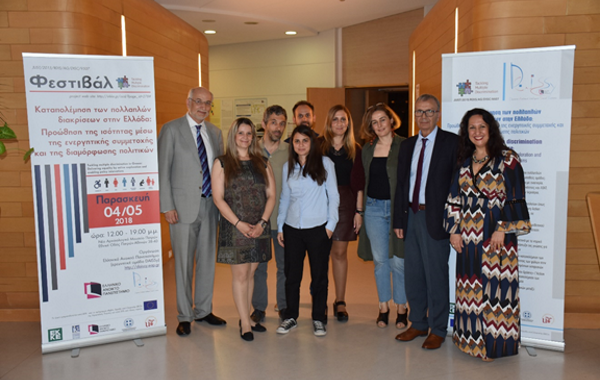
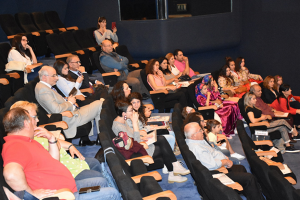
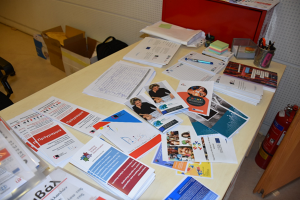
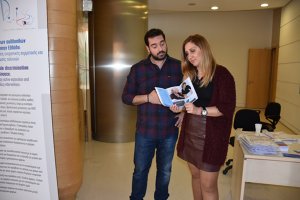
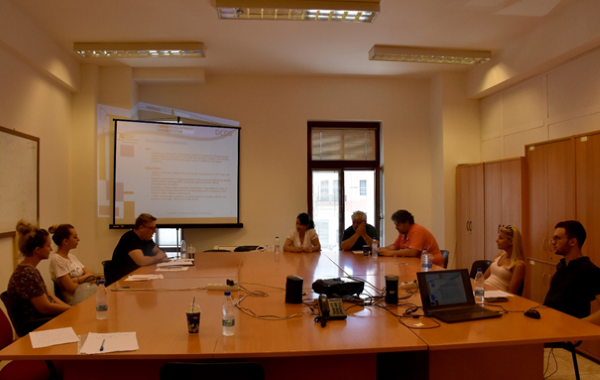
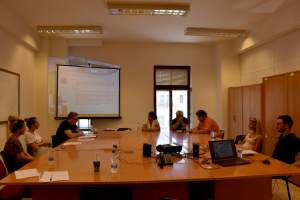 A focus group involving thirteen low-skilled adults took place in Patras, Greece, on June 6, 2018. The focus group took place at noon (12:00 – 14:00) at the Patras premises of the Hellenic Open University, a convenient location near the city centre. Four of participants were unemployed, four of them were employed, three were migrants, one elder – retired, and one student. Among them, there was also a person representing a rehabilitation and integration social enterprise. Eight out of the thirteen participants were women.
A focus group involving thirteen low-skilled adults took place in Patras, Greece, on June 6, 2018. The focus group took place at noon (12:00 – 14:00) at the Patras premises of the Hellenic Open University, a convenient location near the city centre. Four of participants were unemployed, four of them were employed, three were migrants, one elder – retired, and one student. Among them, there was also a person representing a rehabilitation and integration social enterprise. Eight out of the thirteen participants were women.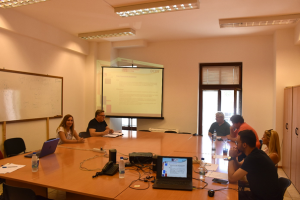 are afraid of their personal data being misused because they consider digital technologies as non-credible.
are afraid of their personal data being misused because they consider digital technologies as non-credible.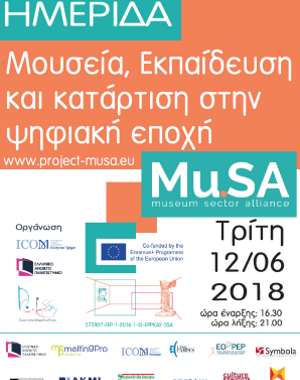
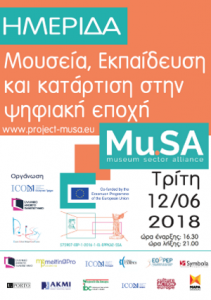 Tο Ελληνικό Τμήμα του ICOM ως εταίρος του έργου
Tο Ελληνικό Τμήμα του ICOM ως εταίρος του έργου 

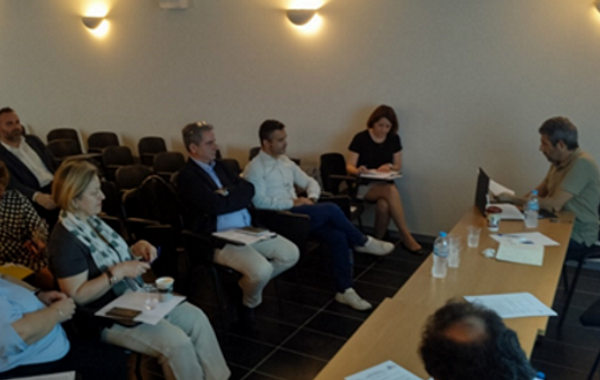
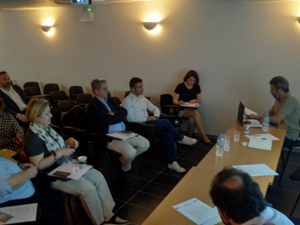 A focus group involving ten policy makers (mainly) and training providers took place in Athens, Greece, on May 3, 2018. The focus group took place in the afternoon (17:30 – 19:30) at the Athens’ Premises of the Hellenic Open University, a convenient location near the city centre. Eight of the participants were representatives of governmental bodies (including the Ministry of Employment, the Ministry of Administrative Reform, the Ministry of Digital Policy, Telecommunications and Media, the Ministry of Economy and Development, the National Centre for Social Research, the Hellenic Telecommunications and Post Commission, the General Secretariat of Coordination) and two were stakeholders from the Adult Learning market. Four out of the ten participants were women. The focus group lasted almost two hours and led to fruitful discussions between the participants.
A focus group involving ten policy makers (mainly) and training providers took place in Athens, Greece, on May 3, 2018. The focus group took place in the afternoon (17:30 – 19:30) at the Athens’ Premises of the Hellenic Open University, a convenient location near the city centre. Eight of the participants were representatives of governmental bodies (including the Ministry of Employment, the Ministry of Administrative Reform, the Ministry of Digital Policy, Telecommunications and Media, the Ministry of Economy and Development, the National Centre for Social Research, the Hellenic Telecommunications and Post Commission, the General Secretariat of Coordination) and two were stakeholders from the Adult Learning market. Four out of the ten participants were women. The focus group lasted almost two hours and led to fruitful discussions between the participants.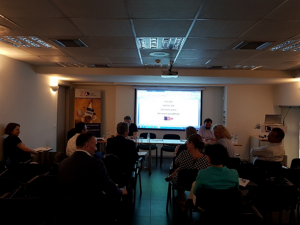 In general, the groups of the population that DCDS should target include people belonging to vulnerable groups (especially those culturally differentiated, e.g. Roma, people with disabilities, (recent and long-term) unemployed, people at risk of poverty, people with chronic disorders, immigrants and migrants, women, single parent families, etc), people aged 45+, unemployed (and especially recently unemployed), etc. An additional group identified includes the people working in high-level positions (e.g. CEOs, traditional media manager, elder academics, artists, judges, public servants, etc) who are ashamed to declare their lack of digital skills. It worth to mention that every attempt to “bridge the digital divide” should not be accomplished once, but should be repeated frequently on a regular basis, as digital skills require continuous updating and practical implementation.
In general, the groups of the population that DCDS should target include people belonging to vulnerable groups (especially those culturally differentiated, e.g. Roma, people with disabilities, (recent and long-term) unemployed, people at risk of poverty, people with chronic disorders, immigrants and migrants, women, single parent families, etc), people aged 45+, unemployed (and especially recently unemployed), etc. An additional group identified includes the people working in high-level positions (e.g. CEOs, traditional media manager, elder academics, artists, judges, public servants, etc) who are ashamed to declare their lack of digital skills. It worth to mention that every attempt to “bridge the digital divide” should not be accomplished once, but should be repeated frequently on a regular basis, as digital skills require continuous updating and practical implementation.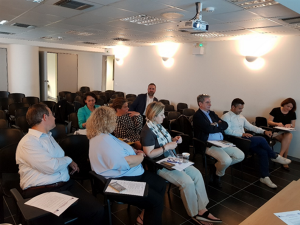 The establishment of a national strategy (including a “set of rules” for training, accreditation, etc) by the Ministry of Digital Policy that would create a common ground is required. In addition, a change in the Greek mindset is required, i.e. to change this latest tension of “computerising” everything and focus more on user (human) – friendly technologies. This priority should be included in every attempt of developing and adopting information system, including the self-assessment tools mentioned earlier. Apart from the “supply” side mentioned, this change in the mindset should also be implemented in the “demand” side, i.e. the users should recognize and adopt digital technologies in their daily work duties, without asking for additional motivations.
The establishment of a national strategy (including a “set of rules” for training, accreditation, etc) by the Ministry of Digital Policy that would create a common ground is required. In addition, a change in the Greek mindset is required, i.e. to change this latest tension of “computerising” everything and focus more on user (human) – friendly technologies. This priority should be included in every attempt of developing and adopting information system, including the self-assessment tools mentioned earlier. Apart from the “supply” side mentioned, this change in the mindset should also be implemented in the “demand” side, i.e. the users should recognize and adopt digital technologies in their daily work duties, without asking for additional motivations.